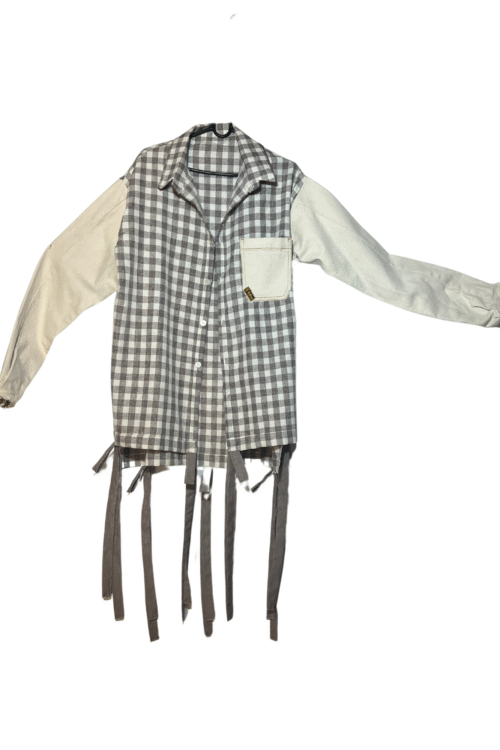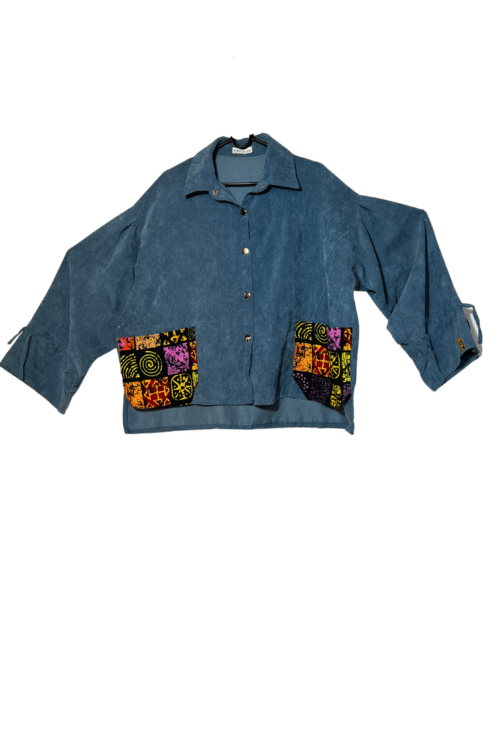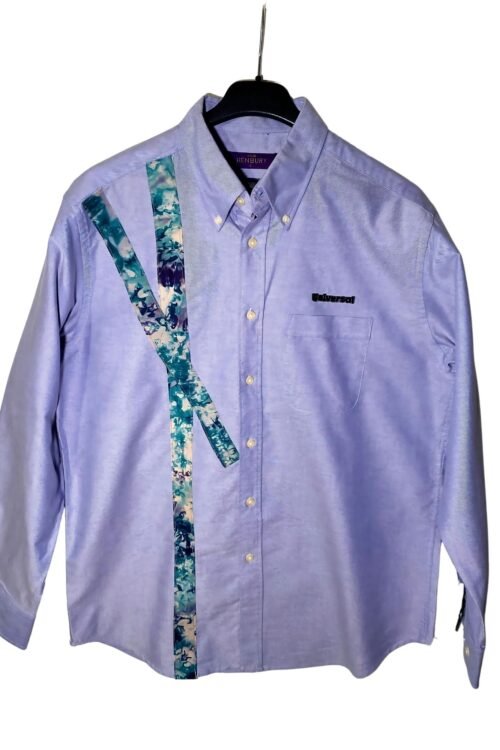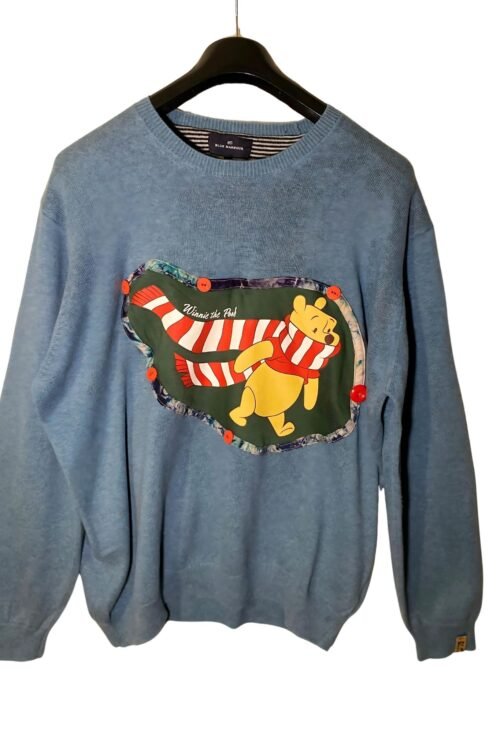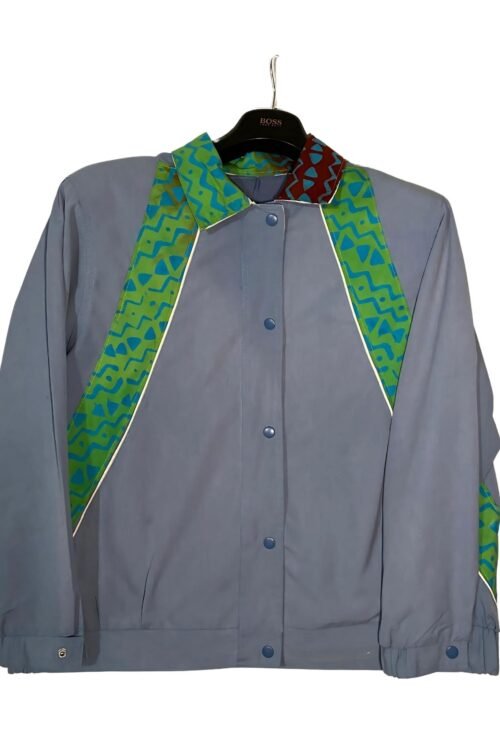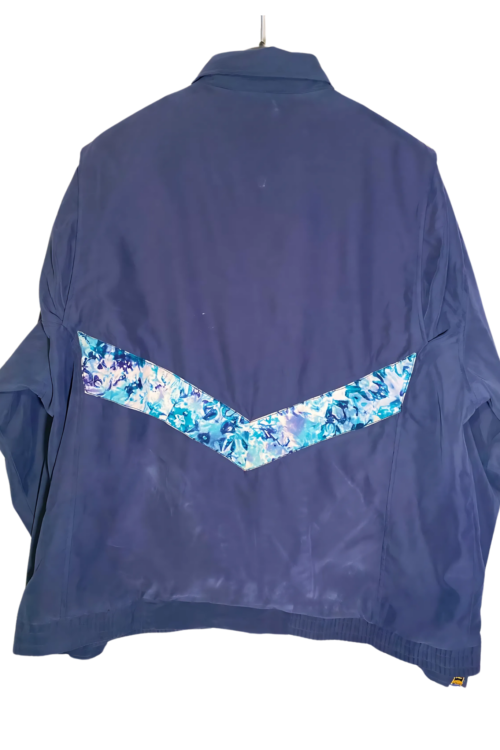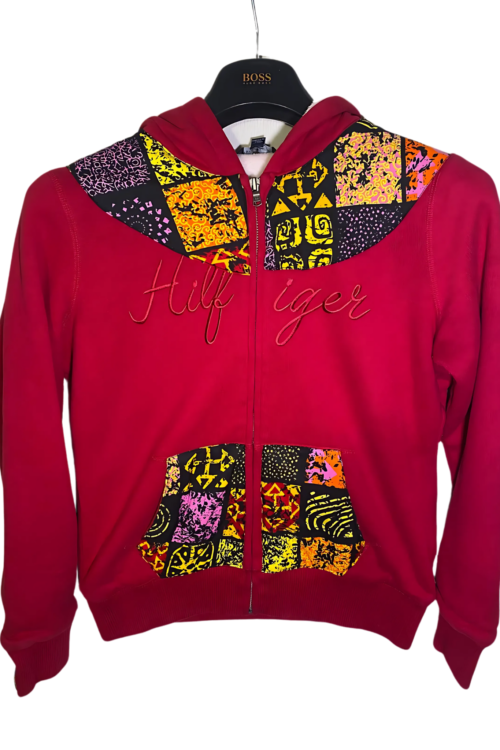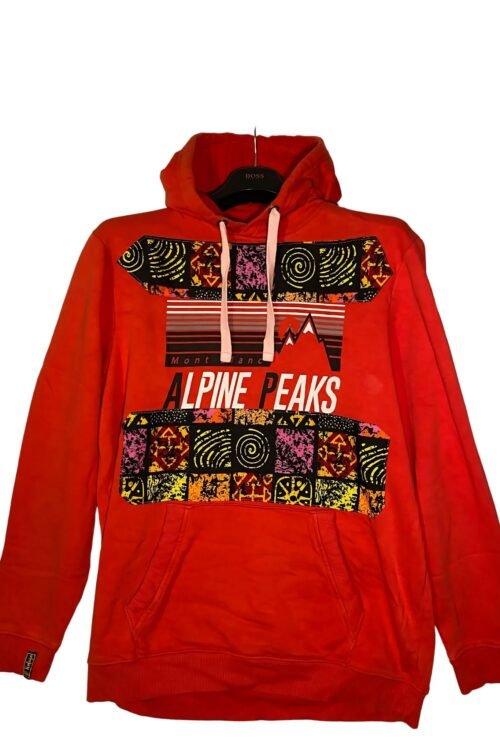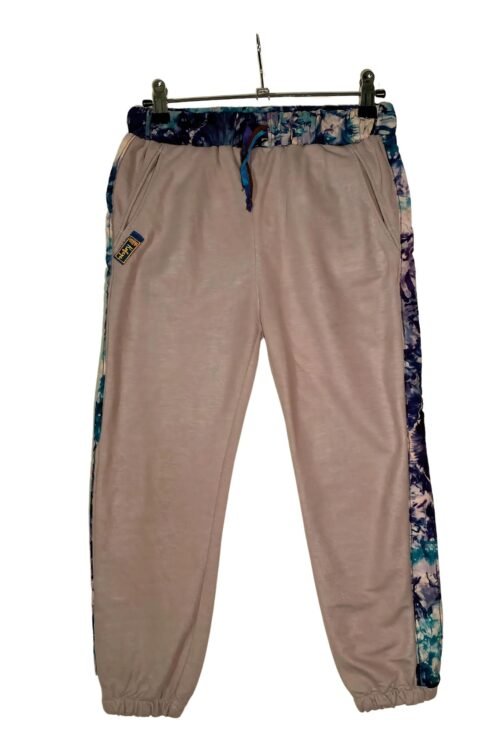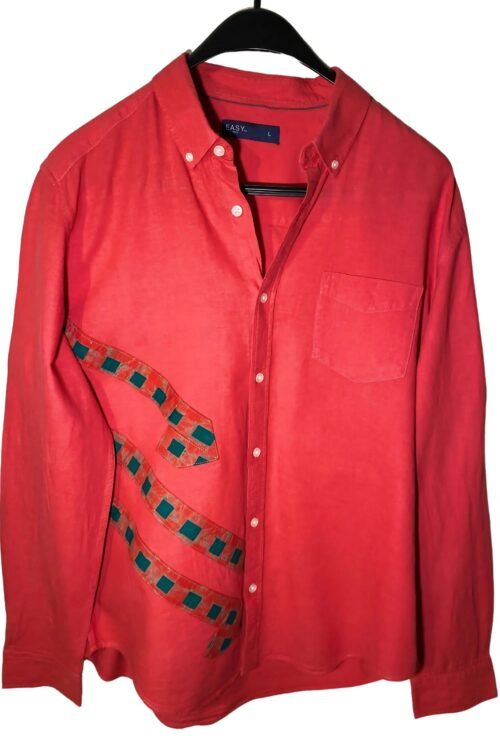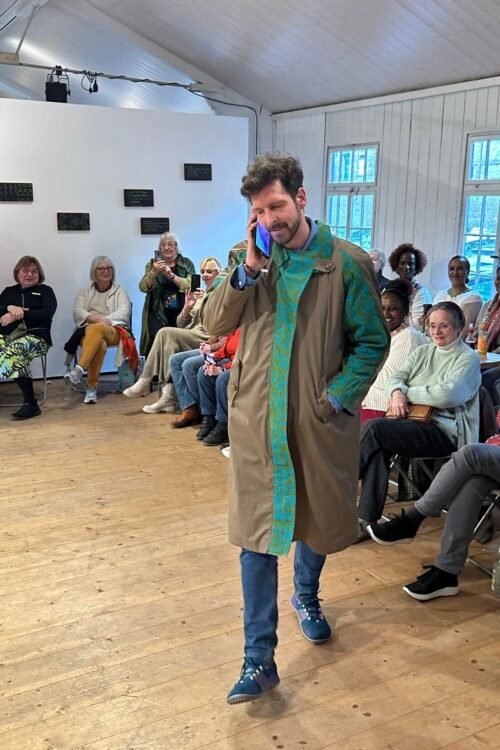“`html
The Unique Upcycling Process
At the heart of Kofaya’s operation lies a distinctive upcycling process that transforms second-hand clothing from the bustling Kantomanto market in Accra, Ghana, into exclusive fashion pieces. The Kantomanto market, known for its vast selection of pre-loved garments, serves as a treasure trove of potential. Each piece of second-hand clothing is meticulously chosen based on quality and style before being given a new lease on life through upcycling. This mindful selection process ensures that each garment has its unique story, heritage, and craftsmanship preserved while being elevated through creative innovation.
Upcycling at Kofaya goes beyond mere transformation; it’s an art form that blends traditional Ghanaian fabrics with contemporary fashion elements. The fusion of old and new textiles creates one-of-a-kind, culturally rich pieces that pay homage to Ghana’s vibrant heritage. By integrating traditional patterns and fabrics, such as batik and kente, with modern design sensibilities, Kofaya not only breathes new life into discarded clothes but also injects a sense of pride and cultural continuity into each garment.
The importance of sustainable fashion cannot be overstated in today’s world, which is increasingly leaning toward eco-friendly practices. Upcycling helps mitigate the overflow of textile waste, reducing the environmental footprint associated with fashion consumption. By reusing and repurposing existing materials, Kofaya promotes a circular economy, which is vital in combatting the detrimental effects of fast fashion.
Furthermore, the cultural significance of blending old and new textiles in Ghanaian design offers a narrative that resonates deeply with notions of heritage and identity. Each upcycled garment serves as a link between generations, intertwining past and present in a tangible expression of decolonized trade. Currently, Kofaya’s distinctive fashion offerings can be found exclusively in Europe, providing an authentic slice of Ghanaian culture to a discerning audience while supporting sustainable fashion practices.
“““html
Empowering Women Tailors through Kofaya Training Center
Kofaya is a social enterprise committed to empowering women tailors in Ghana by providing not only fair wages but also essential training in digital marketing and social media skills. Through this multifaceted approach, Kofaya is addressing the economic and socio-cultural barriers that often impede women in the artisanal sector from achieving their full potential.
A portion of the income generated from Kofaya’s sales is allocated to ensuring that the tailors receive fair compensation for their craftsmanship. In doing so, Kofaya champions ethical and sustainable business practices, promoting fair trade routes between Africa and Europe. The remaining funds are strategically invested in the establishment of the Kofaya Training Center, a key initiative poised to open its doors in October. The center’s primary goal is to equip these talented women with the skills necessary to market their own goods independently, thereby broadening their reach to European audiences and other global markets.
The training programs at the Kofaya Training Center will encompass a variety of digital marketing strategies, including social media management, online storefront creation, and e-commerce optimization. By mastering these competencies, the women tailors will be able to navigate the digital landscape effectively, thereby increasing their visibility and sales in international markets.
Supporting Kofaya through purchases is more than just buying a product; it is an active participation in a movement towards decolonized trade. Your contributions help foster an environment where artisans are rewarded fairly and given the tools to thrive independently. This creates a ripple effect that benefits not only the individual tailors but also their communities, reinforcing sustainable economic growth and cultural preservation.
We invite you to join the Kofaya family and contribute to this transformative cause. By supporting Kofaya, you are not merely buying a piece of clothing; you are investing in a future where fair trade and empowered artisanship are the norms, not the exceptions.
“`


